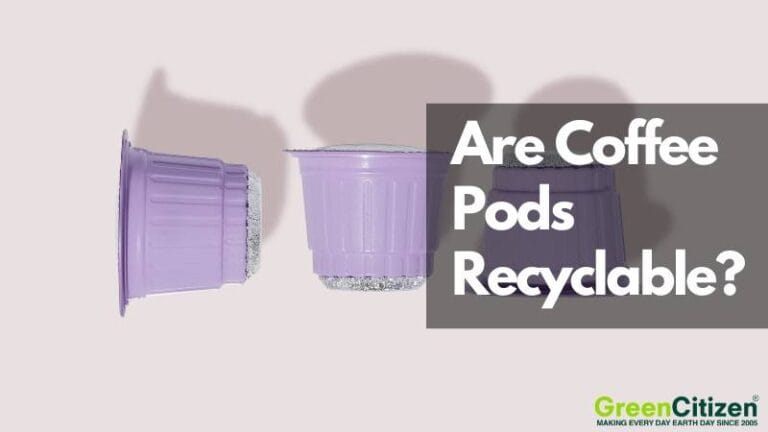I used to think coffee pods were the greatest invention since sliced bread. Every morning, I’d pop in a K-Cup and enjoy my brew.
But then, I wondered, “Are K-Cups recyclable?”
To my surprise, only a small percentage of people consider this issue. The challenges I discovered were eye-opening. In this blog, I’ll share my findings about the recyclability of coffee pods, and how we can do better.
So, grab your favorite cup of coffee and let’s dive into the world of recyclable coffee pods!
Key Takeaways
- Coffee pods are made from mixed materials, and while many are recyclable, proper disposal and local recycling guidelines significantly affect their recyclability.
- Municipal services often struggle with recycling coffee pods due to their small size and mixed materials, leading to the emergence of private recycling programs as effective alternatives.
- Environmentally friendly options like compostable and reusable coffee pods, as well as traditional coffee makers, offer sustainable alternatives to single-use coffee pods.
What Are Coffee Pods Made of?
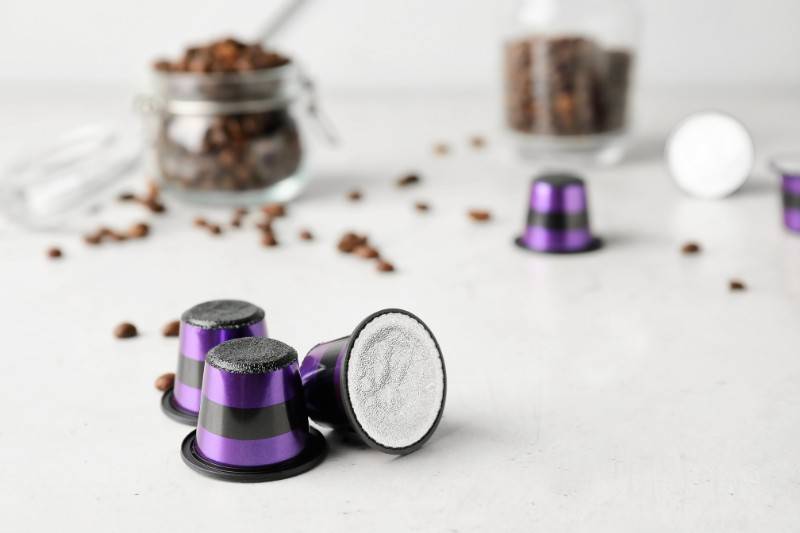
Coffee pods are brilliant little containers designed for a quick and easy cup of coffee or tea. They’re typically made of plastic cups, filters, and coffee or tea.
These pods are made of plastic, aluminum, coffee grounds, and a paper filter, making them a mixed-material marvel. Single-serve coffee machines have become incredibly popular, thanks to their convenience and speed, eliminating the hassle of traditional brewing methods.
Take Nespresso capsules, for example. They’re mainly made of aluminum, which is great for recycling. Reusable coffee pods, often made from aluminum too, can be refilled with your coffee grounds, offering a more sustainable choice. Brands like Real Good Coffee go even further by creating pods from 100% recyclable materials.
There’s a wide variety of coffee pods out there, including some made from compostable materials or PBT plastic. This caters to the growing demand for eco-friendly options among coffee lovers. Knowing what coffee pods are made of is the first step to handling them responsibly.
Are Coffee Pods Recyclable?
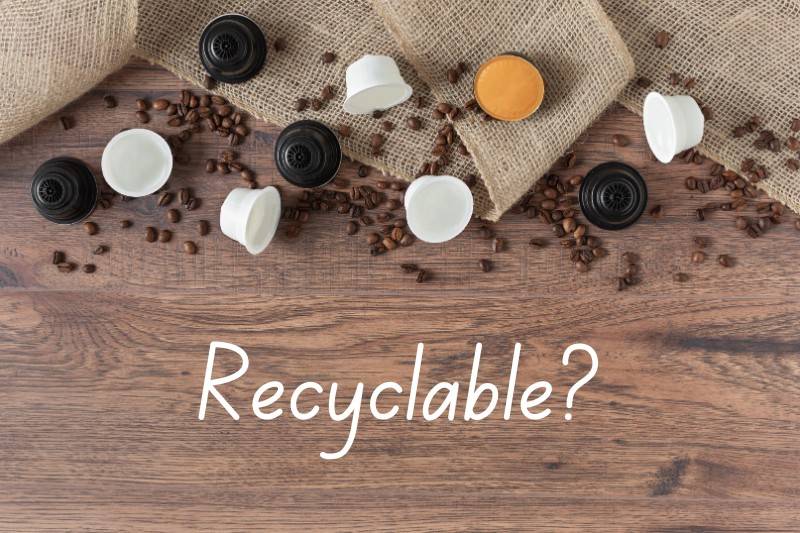
Yes, coffee pods can indeed be recycled. Many pods are made from recyclable materials, but the process isn’t as straightforward as tossing them into the recycling bin. One major hurdle is improper disposal and the lack of sorting, which significantly hinders the recycling of coffee pods.
Different regions have varying recycling practices, so it’s essential to review local guidelines to ensure you’re recycling correctly.
Keurig has made strides in this area by transitioning to polypropylene for its K-Cups, improving their recyclability. They also provide guidance on how to recycle their pods effectively. However, it’s crucial to remember that not all coffee pods are created equal, and their recyclability depends heavily on their composition and local recycling capabilities.
Proper recycling of coffee pods involves separating the components, such as removing the foil lid and coffee grounds, before placing them in the recycling bin. This extra step can make a significant difference in ensuring the materials are processed correctly and don’t end up in the landfill.
Local Recycling Programs
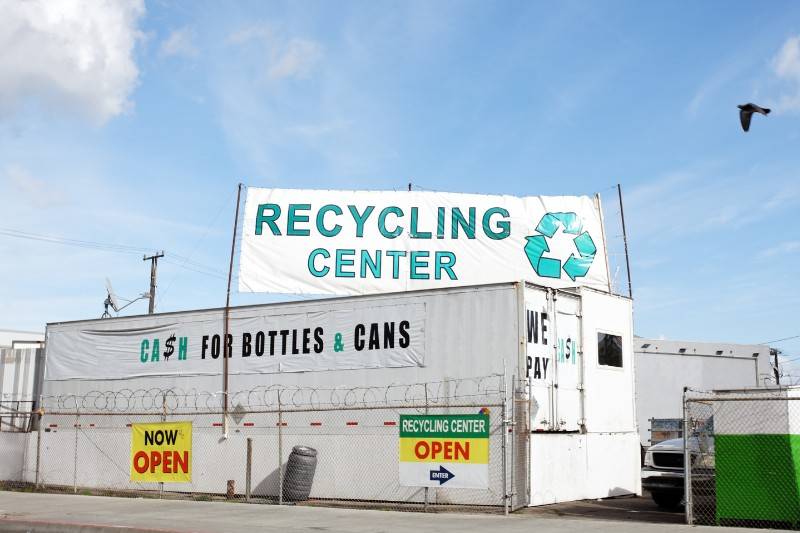
Local recycling programs play a pivotal role in determining whether you can recycle coffee pods in your area. Checking local recycling guidelines is essential to determine if coffee pods are accepted.
Municipal Recycling Services
Municipal recycling services often face limitations when it comes to recycling coffee pods. The processing facilities may not be equipped to handle the mixed materials or the small size of the pods, which can hinder effective sorting and recycling. Not all communities accept coffee pods for recycling, making it imperative to check your local guidelines before disposal.
Interestingly, approximately 60-65% of U.S. residents have access to polypropylene recycling, which includes K-Cup pods.
This means that a significant portion of the population can recycle their K-Cups if they follow the proper steps. However, many coffee pods still end up in the garbage due to their small size and the challenges in sorting them.
Private Recycling Programs
Private recycling programs have emerged as a solution to the coffee pod waste crisis.
These initiatives often use specialized collection methods to ensure the pods are properly gathered for recycling. Advanced processing techniques are employed to separate the materials within the pods, such as plastic, aluminum, and organic coffee grounds.
Notable examples of private recycling programs include companies that offer mail-back services for used pods, allowing consumers to return them for responsible recycling. These programs provide a more sustainable option for coffee drinkers who want to ensure their pods are recycled correctly, even if their local municipal services don’t accept them.
Recycling K-Cups and Nespresso Capsules
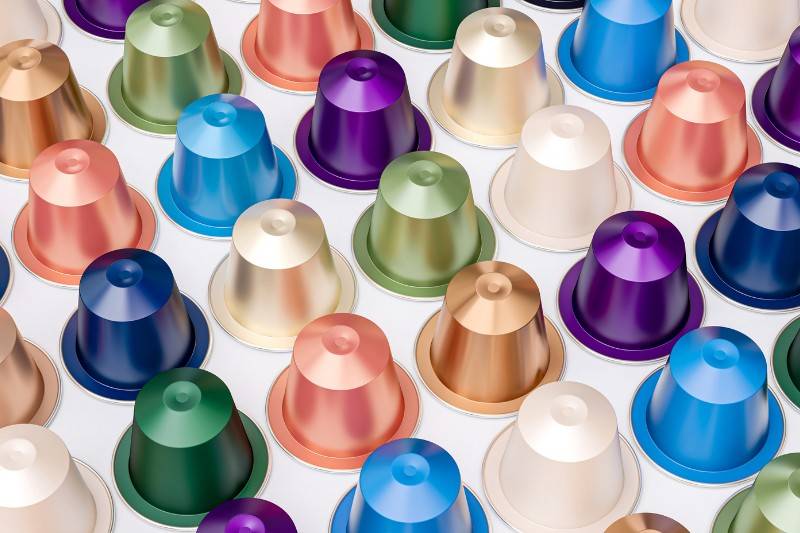
Recycling K-Cups and Nespresso capsules requires specific methods due to their unique materials and designs. The following subsections will provide detailed steps for recycling each type, helping you navigate the process efficiently.
Keurig K-Cups
K-Cups are manufactured using No. 5 plastic, also known as polypropylene. This type of plastic is recyclable. Keurig has introduced EASY-PEEL technology to enhance the recyclability of K-Cups, featuring a built-in tab for easy peeling. Before recycling, users should remove the foil lid and coffee grounds, which can be done easily thanks to this technology.
The K-Cycle program provides recycling bins specifically for K-Cup pods, ensuring they are collected and processed correctly.
Additionally, the Hefty ReNew™ Program utilizes designated orange plastic bags for recycling K-Cups, making it easier for consumers to participate in the recycling process with recyclable k cups.
After collection, the K-Cup plastic is sent to specialized recyclers to create new products. TerraCycle offers a Zero Waste Box, allowing users to send used coffee capsules for recycling without needing to separate materials. These initiatives help reduce the environmental impact of single-serve coffee pods.
Nespresso Capsules
Nespresso capsules are made from aluminum, a material that is fully recyclable through the company’s specific recycling programs.
Consumers can drop off their used capsules at Nespresso boutiques or use designated recycling bins to ensure proper disposal. The company also provides mail-back services, allowing consumers to return used capsules for recycling.
This program ensures that the aluminum is processed and reused, reducing waste and conserving resources. Capsules made entirely from aluminum can be added to regular recycling bins after cleaning.
By participating in Nespresso’s recycling programs, coffee drinker can enjoy their favorite brew while minimizing their environmental footprint. This simple yet effective action can make a positive impact.
Creative Ways to Reuse Coffee Pods
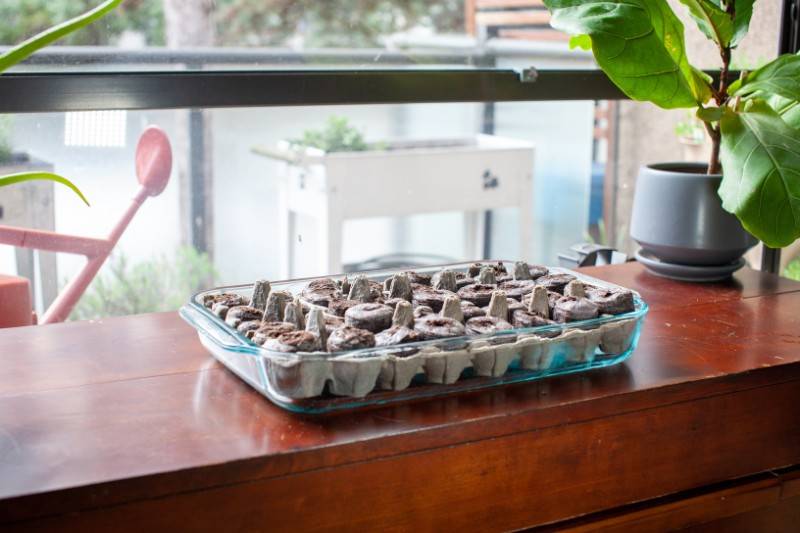
If recycling isn’t an option in your area, or if you’re looking for additional ways to be environmentally responsible, reusing coffee pods creatively can be a fun and effective solution.
The following subsections will explore various ways to repurpose coffee pods, from gardening to home decor.
Seed Starters
An innovative approach to reusing coffee pods involves turning them into seed starters. Simply add soil and seeds to the pods, water them regularly, and provide adequate sunlight. This method is perfect for starting your garden indoors and can be easily transplanted due to the pods’ structure.
Using coffee pods as seed starters not only repurposes the pods but also promotes gardening and sustainability. This method gives new life to used pods while nurturing new plants.
DIY Decorations
Coffee pods can be transformed into unique DIY decorations, adding a personal touch to your home decor. Painting and embellishing the pods allows you to create items like string lights or holiday ornaments. This eco-friendly approach repurposes materials that would otherwise be discarded.
Repurposing coffee pods for decorations not only reduces waste but also allows for creative expression. This fun project can involve the whole family, benefiting both the environment and your home.
Office Organization
Coffee pods can also be repurposed to organize office supplies. They are perfect for separating and storing small items like push pins, paper clips, and coins. By designating specific pods for different supplies, you can keep your desk clutter-free and efficiently organized.
This practical use of coffee pods not only helps in reducing waste but also improves office organization. This simple yet effective method repurposes used pods and enhances productivity.
Environmentally Friendly Alternatives
Reducing environmental impact can be achieved by exploring several environmentally friendly alternatives to single-use coffee pods.
The following subsections will explore compostable coffee pods, reusable pods, and traditional coffee makers as sustainable options.

Compostable Coffee Pods
Compostable coffee pods are designed to break down naturally, leaving no harmful residues behind. They degrade within six months in commercial composting environments, contributing positively to soil health. These pods offer a more environmentally friendly option compared to traditional plastic pods.
Choosing compostable coffee pods enables you to enjoy your coffee while positively impacting the environment. It’s a simple switch that can significantly reduce waste and promote sustainability.
Reusable Pods
Reusable coffee pods are another excellent alternative. These pods can be filled with your own coffee grounds and reused multiple times. They are often made from stainless steel or silicone, providing durability and ease of use.
While cleaning reusable pods might be a minor inconvenience, the environmental benefits far outweigh this small drawback. Reusable pods reduce the need for single-use plastics and allow you to enjoy your favorite coffee blend.
Traditional Coffee Makers
Traditional coffee makers, such as percolators and French presses, offer a zero-waste approach to brewing coffee. These methods do not require single-use pods, eliminating the need for plastic waste and reducing environmental impact.
Opting for traditional brewing methods lets you enjoy a richer coffee experience while promoting sustainability. It’s a simple yet effective way to reduce waste and make a positive environmental choice.
Final Thoughts on Recycling Coffee Pods
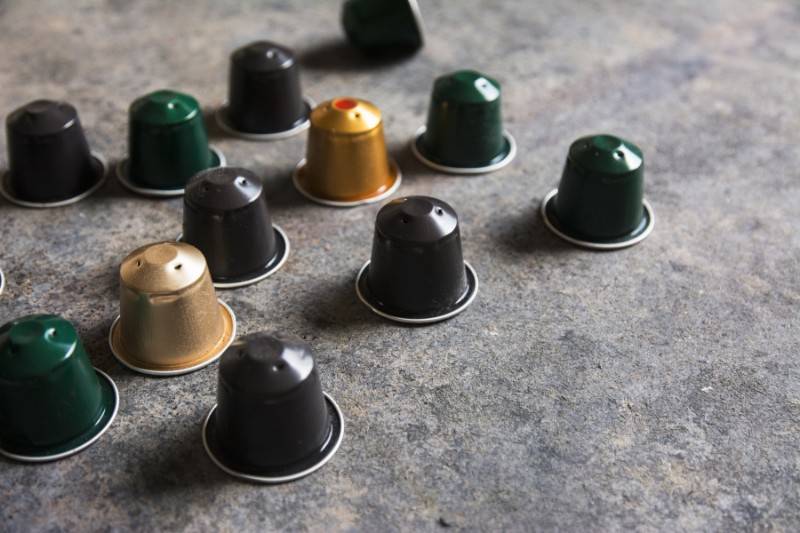
Recycling coffee pods is a small but significant step towards reducing environmental impact. Understanding the materials and proper disposal methods helps you make informed choices that benefit the planet.
Recycling, reusing, or switching to environmentally friendly alternatives all contribute positively.
Sustainable coffee practices begin with small changes in daily routines. Communicating proper disposal methods for coffee pods can also enhance recycling efforts and raise consumer awareness. Together, we can enjoy our coffee habit while being mindful of the environment.
Recycling coffee pods requires understanding their composition, local recycling guidelines, and available programs. Creative reuse and environmentally friendly alternatives offer additional ways to reduce waste. By making conscious choices, we can enjoy our coffee while minimizing our environmental footprint.
Let’s make every cup count.
Frequently Asked Questions (FAQ)
Not all coffee pods are recyclable; it largely depends on the materials and local recycling programs. To ensure proper disposal, always check your local guidelines.
To recycle K-Cups, simply remove the foil lid and coffee grounds, then place the empty pod in a designated recycling bin. Alternatively, consider using programs like K-Cycle and TerraCycle for proper disposal.
Repurposing coffee pods as seed starters, DIY decorations, or office organizers not only reduces waste but also sparks creativity. These simple ideas allow you to make the most out of your used coffee pods.
Compostable coffee pods are specifically engineered to decompose in commercial composting facilities without leaving harmful residues. This environmentally friendly option supports sustainable practices by reducing waste.
There are viable alternatives to single-use coffee pods, such as compostable coffee pods, reusable pods, and traditional brewing methods like French presses and percolators. These options not only reduce waste but also enhance your coffee experience.
